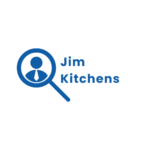Navigating your career can feel overwhelming at times, but asking the right questions can make all the difference. When I think about career development, I realize how crucial it is to engage with my manager. These conversations can unlock new opportunities and provide insights that help shape my professional journey.
In this article, I’ll explore key questions to ask your manager that can enhance your growth and development. Whether you’re seeking guidance on skills to acquire or feedback on your performance, these questions will empower you to take charge of your career path. Let’s dive into how to turn those discussions into a powerful tool for your success.
Career Development Questions to Ask Manager
- Engaging Conversations: Regular discussions with your manager about career development can unlock growth opportunities and insights into performance improvements.
- Open-Ended vs. Specific Questions: Utilize both open-ended questions to foster dialogue and specific skill-related questions to pinpoint areas for development and actionable steps.
- Timing Matters: One-on-one meetings and performance reviews are ideal contexts for addressing career development questions, allowing for focused and structured conversations.
- Preparation is Key: Prioritize preparation by identifying relevant topics, reviewing your performance, and tailoring questions to your manager’s expertise to maximize the effectiveness of your discussions.
- Practice Active Listening: Engage fully during conversations by listening attentively, taking notes, and asking follow-up questions to demonstrate your commitment to growth.
- Mutually Beneficial Relationships: Focusing on personal career development not only enhances your professional journey but also supports organizational success and employee engagement.
Importance Of Career Development
Engaging in career development conversations with my manager creates opportunities for growth. These discussions reveal insights into my performance and areas for improvement. Prioritizing career development enhances job satisfaction and employee engagement.
Career development directly impacts organizational success. When I focus on personal growth, it aligns with my employer’s goals, fostering a mutually beneficial relationship. As I advance my skills and competencies, I contribute more effectively to team objectives.
Understanding the importance of career development helps me stay adaptable. In a rapidly changing job market, developing new skills ensures I remain relevant and competitive. Regular conversations with my manager about my career path empower me to take charge of my professional journey.
Structured career development conversations lead to clear expectations. I gain clarity on my current role and future progression within the organization. This clarity reduces uncertainty and helps me work towards measurable goals.
Moreover, the benefits of career development ripple beyond individual aspirations. Organizations that prioritize employee growth often experience lower turnover rates and higher productivity levels. Investing in my development directly contributes to the overall success of my workplace.
Types Of Career Development Questions
Engaging in a variety of question types maximizes the effectiveness of career development conversations. Focus on open-ended questions and specific skill-related questions to gain deeper insights.
Open-Ended Questions
Open-ended questions encourage thoughtful dialogue and allow managers to share perspectives. Consider asking:
- What are the biggest challenges you face in your role?
- How do you envision my career path within the organization?
- What skills do you think are essential for my growth?
- How can I contribute to the team more effectively?
These questions provide clarity on expectations and open the floor for discussion. They foster a supportive environment while revealing opportunities for personal and professional development.
Specific Skill-Related Questions
Specific skill-related questions target areas for development and improvement. Examples include:
- Which technical skills should I prioritize to advance in my position?
- What resources or training can you recommend for enhancing my skills?
- How can I demonstrate my proficiency in [specific skill]?
- How often should I seek feedback on my performance in this area?
These inquiries highlight your commitment to growth and help establish actionable steps. Focusing on skills makes it easier for you and your manager to align goals with organizational needs.
Timing And Context For Asking Questions
Choosing the right time and context for discussions with managers significantly impacts the effectiveness of career development questions. Consider the following contexts to maximize the value of these conversations.
One-On-One Meetings
One-on-one meetings provide a dedicated space for focused dialogue. I prefer to schedule these meetings regularly, ideally once a month, to ensure ongoing communication. During this time, I ask specific questions about my career path, skills, and opportunities for growth. This setting fosters trust and encourages candid feedback, making it easier to address concerns or highlight achievements.
Performance Reviews
Performance reviews present an ideal opportunity to discuss career development. I use this structured time to reflect on my accomplishments and inquire about areas needing improvement. Asking targeted questions about future opportunities and organizational goals enhances understanding and demonstrates my commitment to growth. Performance reviews often highlight expectations, allowing me to align personal aspirations with career objectives effectively.
Tips For Effectively Asking Questions
Asking questions effectively requires both preparation and engagement during the conversation. I focus on strategies that enhance dialogue and ensure I gather the necessary insights for my career development.
Preparing Ahead Of Time
Preparing ahead of time maximizes the potential of the conversation. I identify specific topics I want to cover and create a list of questions. This approach helps me prioritize what’s most relevant to my career goals. Reviewing my performance and achievements prior to the meeting provides context for my inquiries. Knowing key areas for growth aids in formulating targeted questions. I also consider my manager’s background and expertise, tailoring questions that resonate with their insights.
Active Listening
Active listening ensures I fully engage with my manager’s responses. I concentrate on understanding their feedback and insights rather than formulating my next question while they speak. Paraphrasing their comments demonstrates that I value their input. I take notes during the conversation to capture key points, allowing for deeper reflection later. Asking follow-up questions based on their responses facilitates a richer dialogue, reinforcing my commitment to professional growth.
Conclusion
Engaging in career development conversations with my manager has the potential to transform my professional journey. By asking thoughtful questions, I can uncover insights that not only enhance my skills but also align my aspirations with the organization’s goals. This proactive approach fosters a culture of growth and collaboration.
I’ve learned that the right timing and preparation are key to these discussions. Whether during one-on-one meetings or performance reviews, I can create opportunities for meaningful dialogue. By prioritizing my questions and actively listening to the feedback, I’m setting myself up for success in my career development. Embracing this process will help me stay adaptable and thrive in an ever-evolving job market.

